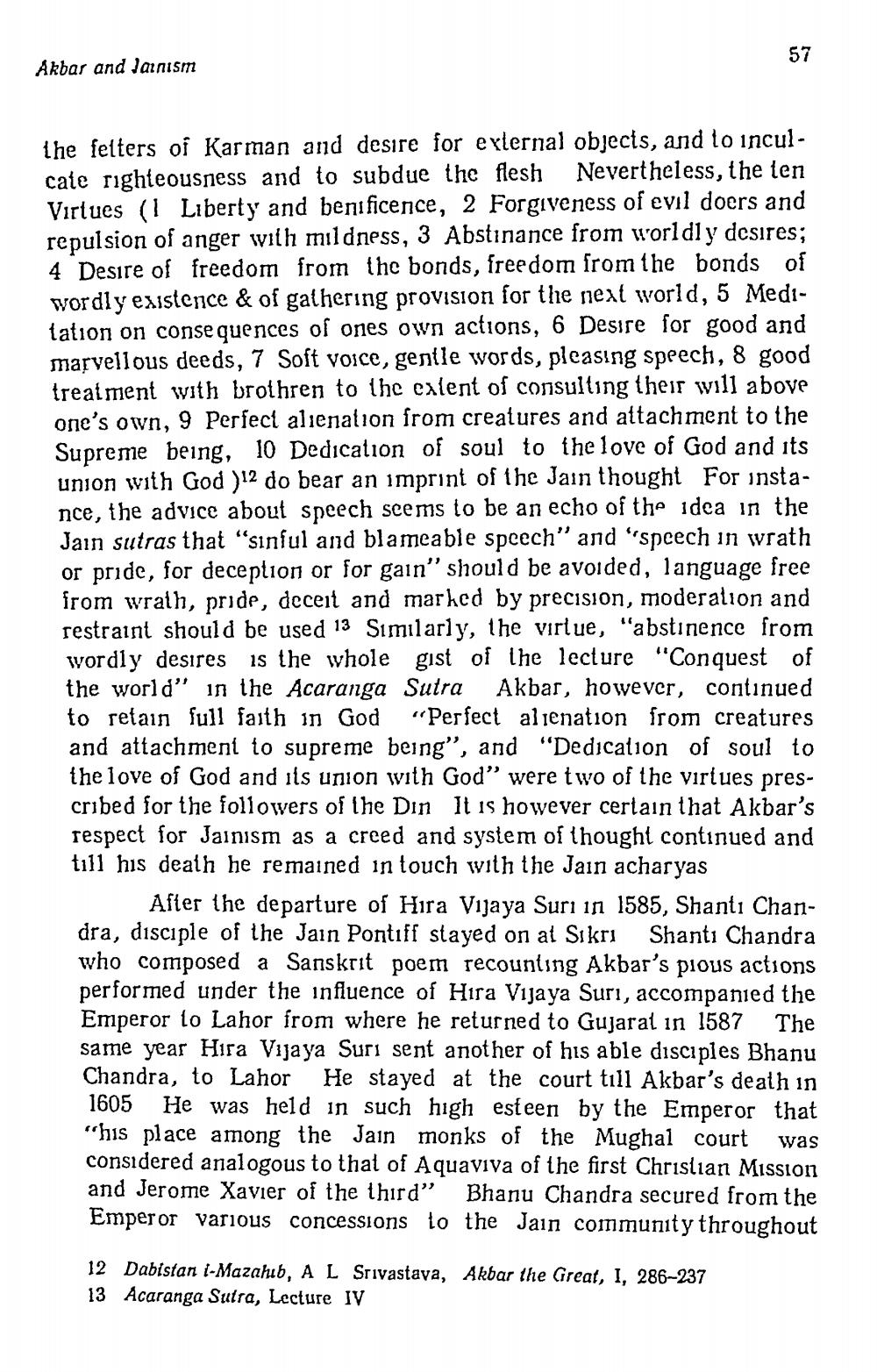________________
57
Akbar and Jainism
the felters of Karman and desire for external objects, and to inculcate righteousness and to subdue the flesh Nevertheless, the len Virtues (1 Liberty and benificence, 2 Forgiveness of evil doers and repulsion of anger with mildness, 3 Abstinance from worldly desires; 4 Desire of freedom from the bonds, freedom from the bonds of wordly existence & of gathering provision for the next world, 5 Meditation on consequences of ones own actions, 6 Desire for good and marvellous deeds, 7 Soft voice, gentle words, pleasing speech, 8 good treatment with brothren to the extent of consulting their will above one's own, 9 Perfect alienation from creatures and attachment to the Supreme being, 10 Dedication of soul to the love of God and its union with God )12 do bear an imprint of the Jain thought For instance, the advice about speech seems to be an echo of the idea in the Jain sutras that "sinful and blameable speech' and ''speech in wrath or pride, for deception or for gain" should be avoided, language free from wrath, pride, deceit and marked by precision, moderation and restraint should be used 13 Similarly, the virtue, "abstinence from wordly desires is the whole gist of the lecture "Conquest of the world" in the Acaranga Sutra Akbar, however, continued to retain full faith in God "Perfect alienation from creatures and attachment to supreme being”, and “Dedication of soul to the love of God and ils union with God” were two of the virtues prescribed for the followers of the Din It is however certain that Akbar's respect for Jainism as a creed and system of thought continued and till his death he remained in touch with the Jain acharyas
After the departure of Hira Vijaya Suri in 1585, Shanti Chandra, disciple of the Jain Pontiff stayed on at Sikri Shanti Chandra who composed a Sanskrit poem recounting Akbar's pious actions performed under the influence of Hira Vijaya Suri, accompanied the Emperor lo Lahor from where he returned to Gujarat in 1587 The same year Hira Vijaya Suri sent another of his able disciples Bhanu Chandra, to Lahor He stayed at the court till Akbar's death in 1605 He was held in such high esteen by the Emperor that "his place among the Jain monks of the Mughal court was considered analogous to that of Aquaviva of the first Christian Mission and Jerome Xavier of the third” Bhanu Chandra secured from the Emperor various concessions to the Jain community throughout
12 Dabistan i-Mazahib, AL Srivastava, Akbar the Great, I, 286-237 13 Acaranga Sutra, Lecture IV




